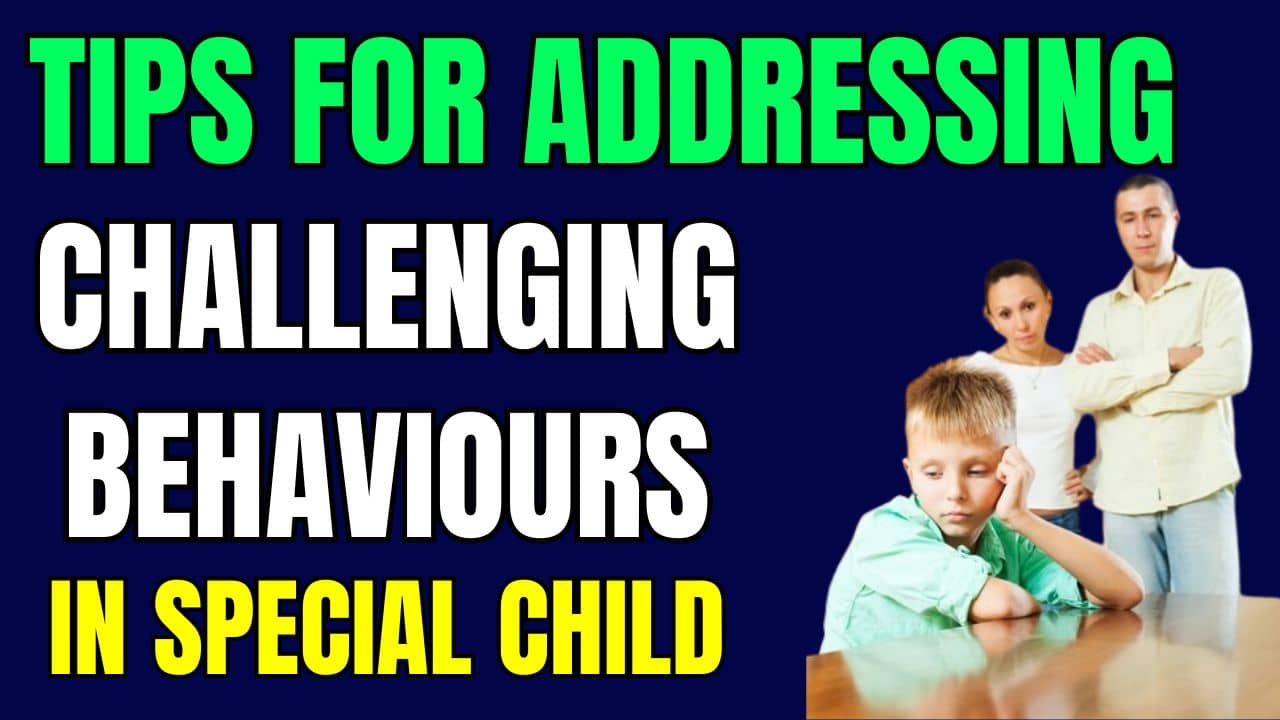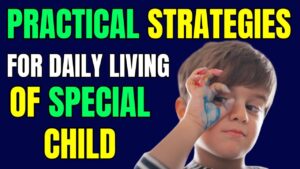Navigating challenging behaviors in special needs children can present unique obstacles for caregivers and educators alike. However, with the right tips and strategies, it’s possible to create a supportive environment that fosters positive growth and development. In this guide, we’ll explore practical approaches to addressing these behaviors, empowering caregivers with tools to better understand and support the children in their care. From communication techniques to proactive interventions, we’ll delve into actionable tips aimed at promoting a more harmonious and fulfilling experience for both children and caregivers alike.
Understanding and addressing challenging behaviours
Understanding and addressing challenging behaviours is crucial to supporting individuals with Autism Spectrum Disorder (ASD) and creating a positive and inclusive environment. This chapter delves into strategies for comprehending the roots of challenging behaviours and implementing effective interventions to foster positive outcomes.
1. Behaviour as Communication:
- Recognize that challenging behaviours often serve as a form of communication.
- Explore the underlying messages or needs that may be expressed through behaviour.
2. Functional Behaviour Assessment (FBA):
- Conduct a thorough Functional Behaviour Assessment to identify the function of challenging behaviours.
- Examine antecedents, triggers, and consequences to develop targeted interventions.
3. Individualized Approaches
- Acknowledge that each individual with ASD is unique, and challenging behaviours may vary.
- Tailor interventions are based on the individual’s specific needs, preferences, and strengths.
4. Environmental Considerations
- Evaluate the environment for potential stressors or sensory triggers.
- Modify the environment to create a supportive and accommodating setting.
5. Antecedent Modification
- Implement antecedent modifications to prevent challenging behaviours.
- Identify and adjust factors that precede the behaviour to create a more predictable and manageable environment.
6. Teaching Replacement Behaviours:
- Teach and reinforce alternative, more appropriate behaviours.
- Encourage the development of skills that serve the same function as the challenging behaviour.
7. Positive Behaviour Support (PBS):
- Embrace Positive Behaviour Support strategies to promote positive alternatives.
- Reinforce desired behaviours and create an environment that fosters success.
8. Collaborative Interventions:
- Collaborate with educators, therapists, and other professionals to develop and implement interventions.
- Ensure a consistent and coordinated approach across different settings.
9. Sensory-Based Interventions:
- Address sensory sensitivities that may contribute to challenging behaviours.
- Provide sensory-friendly accommodations and sensory breaks.
10. Communication
- Enhance communication skills to reduce frustration and promote effective expression.
- Encourage the use of alternative communication methods, such as visual supports or AAC.
11. Reinforcement Systems:
- Establish reinforcement systems to motivate positive behaviours.
- Use a combination of intrinsic and extrinsic rewards to reinforce appropriate conduct.
12. Individualized Behaviour Plans:
- Develop individualized behaviour plans based on the results of the FBA.
- Outline specific strategies, interventions, and goals to address challenging behaviours.
13. Functional Communication Training (FCT):
- Implement Functional Communication Training to teach alternative ways of expressing needs.
- Encourage individuals to communicate effectively to meet their requirements.
14. Social Skills Training:
- Incorporate social skills training to address social challenges and reduce isolation.
- Teach and reinforce appropriate social behaviours.
15. Coping
- Teach and encourage coping strategies for dealing with stress or anxiety.
- Help individuals develop a toolbox of strategies to manage challenging emotions.
16. Self-Regulation Techniques:
- Introduce self-regulation techniques to empower individuals to manage their behaviour.
- Foster skills such as deep breathing, mindfulness, or sensory self-regulation.
17. Consistency in Expectations:
- Maintain consistency in expectations across different settings.
- Ensure that individuals receive clear and consistent messages about acceptable behaviours.
18. Crisis Prevention and
- Provide training on crisis prevention and intervention techniques.
- Equip caregivers and professionals with strategies to de-escalate situations and ensure safety.
19. Family Involvement:
- Involve family members in understanding and addressing challenging behaviours.
- Create a collaborative approach that includes insights and perspectives from family members.
20. Continuous Monitoring and Adjustment:
- Continuously monitor the effectiveness of interventions.
- Adjust strategies based on ongoing assessments and the individual’s progress.
By understanding the roots of challenging behaviours and implementing targeted interventions, parents can play a pivotal role in creating a supportive and positive environment for individuals with ASD. Consistent collaboration with professionals, including educators and therapists, ensures a comprehensive and coordinated approach to addressing challenging behaviours effectively.





